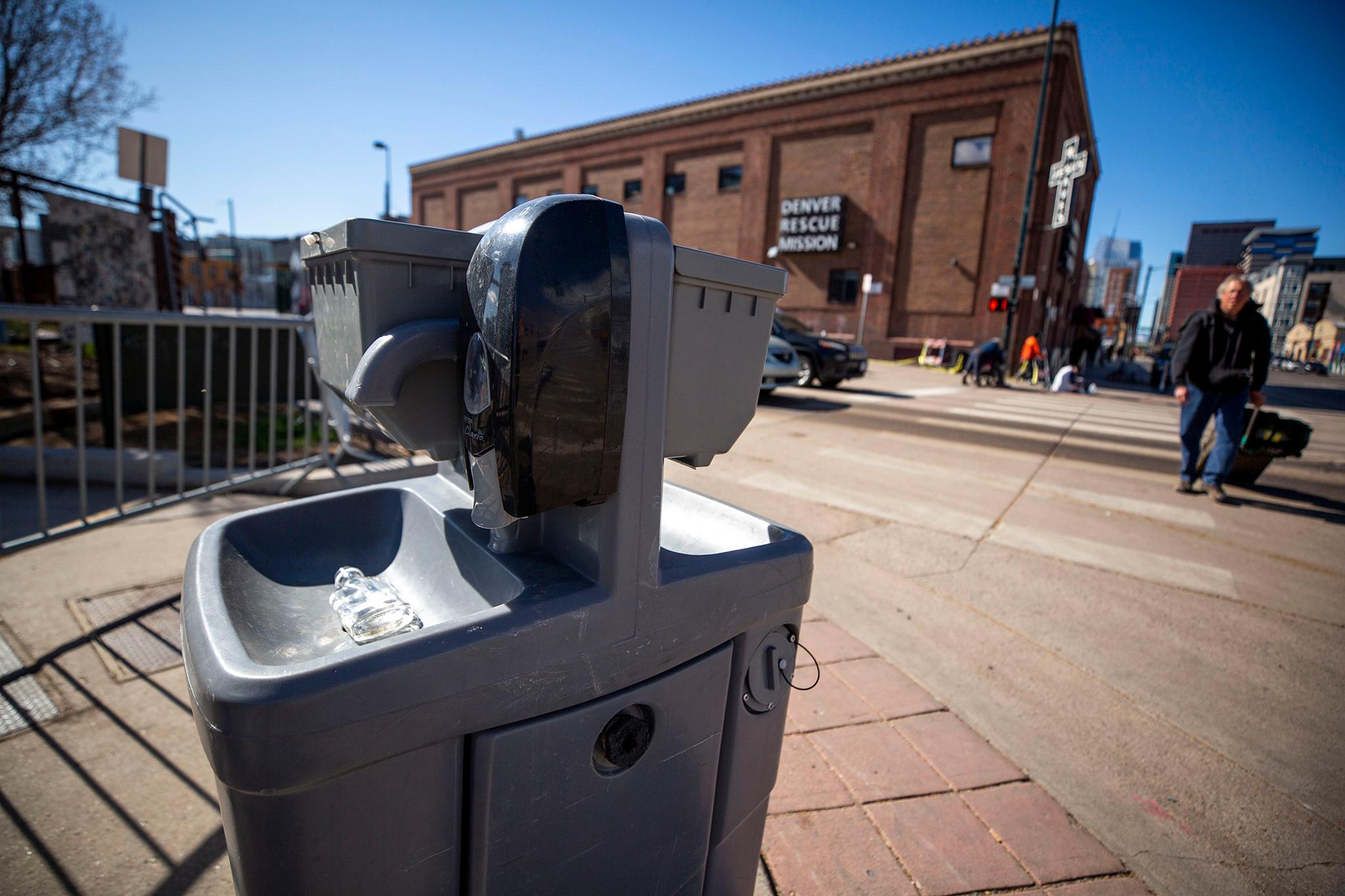Nonprofits that support people experiencing homelessness have administered tests for the new coronavirus and are working with the city to ensure those found to be infected have a place to recover without risking others.
But the organizations, which have found themselves on the front lines of the pandemic, aren't capable of informing people experiencing homelessness that they may have shared a shelter with someone who has COVID-19, the disease caused by the coronavirus.
"As you could imagine, that would be very difficult for us to notify every person who's stayed at the mission the month of March," said Alexxa Gagner, director of marketing and communications for the Denver Rescue Mission.
Late last week, the Colorado Coalition for the Homeless received positive coronavirus results for two people experiencing homelessness that had been tested at its downtown Denver clinic. Because the two people met criteria to be tested -- which include having symptoms or having been in contact with someone who was infected -- they had been given hotel rooms to stay in while they awaited their test results, Cathy Alderman, the coalition's vice president of communications and public policy, said Friday.
The coalition and other nonprofits have worked with the city to get people awaiting coronavirus tests into hotel rooms, which city officials call respite rooms, where they can also stay while recovering. A city spokesman confirmed over the weekend that two people in respite rooms had tested positive.
Spokesman Derek Woodbury added that as of Saturday, the city had a total of 119 respite rooms in several hotels for people experiencing homelessness affected by the coronavirus, and another 20 rooms that it had been secured but for which it did not yet have staff to support.
Gagner, of the Rescue Mission, said the city has informed her organization that one person who has been in a Denver Rescue Mission shelter has tested positive for the coronavirus.
Nancy Kuhn, a spokeswoman for the city, said the Denver Department of Public Health and Environment "stays in close daily contact with service providers about confirmed positive cases who are experiencing homelessness, as well as those exhibiting COVID-like symptoms."
Kuhn said such information is also shared with the Metro Denver Homeless Initiative, which oversees a database of people seeking services that is shared among many providers.
Matt Meyer, executive director of the Metro Denver Homeless Initiative, said the information could be used, for example, to ensure that if someone who is supposed to be isolated instead drops in at a day shelter, he or she could be advised to return to a respite room.
Meyer said tracing the people with whom an infected person has come into contact is "beyond our scope." He said shelters were operating on the assumption that the coronavirus was in the community
Alderman of the Colorado Coalition for the Homeless said over the weekend that a third person tested at her organization's clinic had had a positive result and that that person was not experiencing homelessness and was isolated at home.
Alderman said her organization had so far tested about 80 people at its clinic at 2130 Stout St. and that about 40 results were pending.
In a statement Monday, the state health department said that because coronavirus tests were in short supply, it was prioritizing them for health care workers with symptoms and patients in hospitals. People in homeless shelters are also a priority for tests.
At the Denver Rescue Mission, Gagner said 35 temporary workers have been hired to ensure shelter areas are kept clean and to help prepare meals. Gagner said shelter surfaces were being cleaned hourly, and that more people have been coming for meals.
She said the new hires were also needed because employees who were 65 or older, an age group seen at high risk of falling seriously ill from the coronavirus, are staying home.
Kristen Baluyot, who is the Salvation Army's Denver metro social services director, said her organization has not received word that a shelter resident has tested positive. If it did, the organization would not have the capacity to be able to inform those who might have come into contact with a COVID-19 patient, she said.
Baluyot said service providers and the city were working together to respond to a fast-changing situation.
"We're planning. We're talking. We're trying to figure it out," she said.
In particular, they're working on providing shelter residents more space. Health experts recommend people keep six feet apart to try to stop person-to-person spread of the coronavirus.
Baluyot said the Salvation Army was providing meals for people in the respite rooms and at the St. Charles Recreation Center at 3777 Lafayette St., a facility in Cole that the city equipped with cots and portable toilets and opened as a an additional shelter on March 20.
On Monday, the city said an emergency day shelter would be opened Tuesday for women at the Glenarm Recreation Center at 2800 Glenarm Place. The shelter, with a capacity of up to 200 people, will serve two meals and be open from 6 a.m. to 5 p.m. daily.
Nissa LaPoint, public relations and media manager at Catholic Charities, said women would have space to rest at Glenarm.
"I know these things take time," she said. "The sooner we have solutions, the better."
LaPoint said if Catholic Charities were to learn a guest at one of its shelters had tested positive for coronavirus, her organization would try to contact those with whom he or she had been in contact. But she acknowledged it would be difficult and depend on shelter guests keeping in touch with Catholic Charities.
People experiencing homelessness are not more likely than others to contract COVID-19, the potentially fatal disease caused by the coronavirus. But underlying health conditions and the stress of being unhoused means many could be especially hard hit if they fall ill.
Correction: This article was updated to correct Kristen Baluyot's title. She is the Salvation Army's Denver metro social services director.













